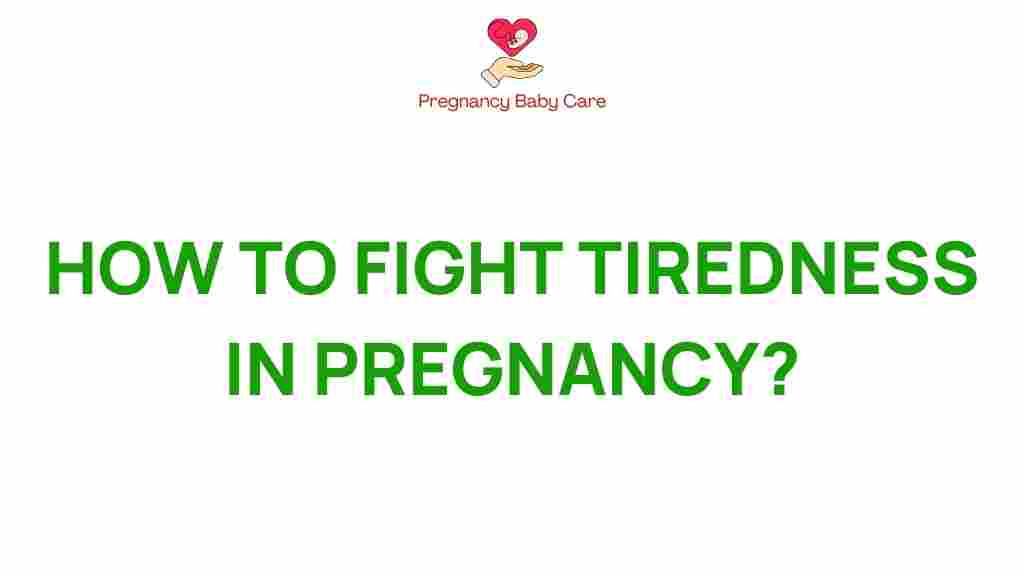Unraveling the Secrets: How to Combat Tiredness in Pregnancy
Pregnancy is an incredible journey filled with anticipation and excitement, but it can also come with its fair share of challenges. One of the most common issues faced by expectant mothers is tiredness. This fatigue can significantly affect energy levels, wellness, and overall maternal health. Understanding how to manage this tiredness is essential for a healthy pregnancy and a happier experience. In this article, we will explore effective strategies to combat tiredness during pregnancy, focusing on nutrition, self-care, sleep, and other vital aspects of maternal wellness.
Understanding Tiredness in Pregnancy
Tiredness in pregnancy is a natural occurrence due to various physiological changes happening in a woman’s body. Hormonal shifts, increased blood volume, and the physical demands of carrying a baby can all contribute to feelings of fatigue. Additionally, emotional factors, lifestyle changes, and stress can exacerbate tiredness. Recognizing these factors is the first step in combating fatigue and improving energy levels.
Step-by-Step Guide to Combatting Tiredness
To effectively manage tiredness during pregnancy, consider implementing the following strategies:
1. Prioritize Sleep
Quality sleep is crucial for combating tiredness. Here are some tips to improve your sleep quality:
- Establish a bedtime routine: Go to bed and wake up at the same time every day.
- Create a comfortable sleep environment: Make sure your bedroom is dark, quiet, and cool.
- Limit screen time: Avoid screens an hour before bed to promote better sleep.
If you are struggling to sleep due to discomfort, try using pregnancy pillows to support your body. Additionally, practicing relaxation techniques, such as meditation or light stretching, can help ease you into a good night’s sleep.
2. Focus on Nutrition
Your diet plays a significant role in your energy levels and overall wellness during pregnancy. To combat tiredness, consider the following nutritional tips:
- Eat a balanced diet: Incorporate a variety of fruits, vegetables, whole grains, lean proteins, and healthy fats.
- Stay hydrated: Drink plenty of water throughout the day to prevent dehydration, which can lead to fatigue.
- Snack wisely: Choose healthy snacks such as nuts, yogurt, and fresh fruit to maintain energy levels.
Consulting with a nutritionist can provide personalized dietary advice tailored to your specific needs during pregnancy. For more information on nutrition and pregnancy, visit this resource.
3. Engage in Gentle Exercise
While it may seem counterintuitive, engaging in light physical activity can boost your energy levels. Consider the following:
- Walking: A simple daily walk can improve circulation and energy.
- Yoga: Prenatal yoga can help relieve tension and improve sleep quality.
- Stretching: Gentle stretches can alleviate body aches and promote relaxation.
Always consult with your healthcare provider before starting any exercise regimen during pregnancy to ensure it is safe for you and your baby.
4. Manage Stress
High stress levels can contribute to feelings of fatigue. To manage stress effectively:
- Practice mindfulness: Mindfulness exercises can help you stay grounded and reduce anxiety.
- Connect with others: Share your feelings with friends, family, or support groups.
- Take breaks: Allow yourself time to relax and unwind throughout the day.
Consider journaling or engaging in hobbies that bring you joy as a way to de-stress.
5. Regular Check-ups
Regular prenatal check-ups are essential for monitoring both maternal health and the baby’s development. During these visits, discuss any persistent feelings of tiredness with your healthcare provider. They can help determine if there are underlying issues, such as anemia or thyroid problems, that may be contributing to your fatigue.
Troubleshooting Common Fatigue Issues
Even with the best strategies in place, some women may still experience significant tiredness during pregnancy. Here are some troubleshooting tips:
1. Identify Potential Deficiencies
Fatigue can sometimes be caused by nutritional deficiencies. Common deficiencies in pregnant women include:
- Iron: Essential for blood production; low levels can lead to anemia.
- Vitamin D: Important for bone health and immune function.
- Folate: Crucial for fetal development and can impact energy levels.
If you suspect a deficiency, consult your healthcare provider for testing and recommendations on supplements.
2. Evaluate Your Mental Health
Mental health plays a significant role in energy levels and overall wellness during pregnancy. If you are feeling overwhelmed or depressed, consider seeking help from a mental health professional. Therapy can provide coping strategies and emotional support during this transformative time.
3. Adjust Your Daily Routine
Sometimes, simple adjustments to your daily routine can help alleviate fatigue:
- Break tasks into smaller segments: This can make overwhelming tasks more manageable.
- Listen to your body: If you need a nap, allow yourself to rest.
- Limit multitasking: Focus on one task at a time to reduce stress and fatigue.
Conclusion
Combatting tiredness in pregnancy is essential for maintaining energy levels, enhancing maternal health, and ensuring overall wellness. By prioritizing sleep, focusing on nutrition, engaging in gentle exercise, managing stress, and attending regular check-ups, expectant mothers can effectively navigate the challenges of fatigue. Remember, every pregnancy is unique, and it’s important to listen to your body and seek professional guidance when needed. Embrace self-care and give yourself grace during this incredible journey, and you will find the energy and joy that pregnancy can bring.
For further reading on maternal health and wellness during pregnancy, explore more resources at this site.
This article is in the category Pregnancy and created by PregnancyBabyCare Team
